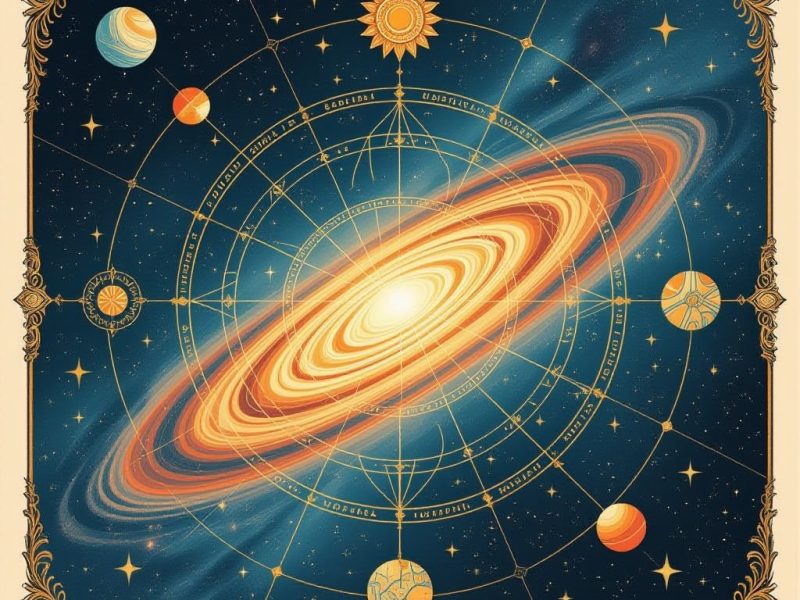Introduction: Bridging Ancient Wisdom and Modern Science
For millennia, Vedic astrology, or Jyotish, has offered insights into the cosmic order and its influence on human life. Rooted in the ancient Vedas, this system perceives the universe as an interconnected web where celestial bodies mirror earthly events. In recent times, modern physics has unveiled concepts like space-time and quantum mechanics, revealing a universe more interconnected than previously imagined. This convergence prompts a fascinating inquiry: How does Vedic astrology align with contemporary understandings of space-time?
Vedic Astrology: The Science of Light
Jyotish, translating to “science of light,” is more than predictive astrology; it’s a comprehensive system that interprets the cosmic light patterns to understand human destiny. It considers the positions of planets and stars at the time of one’s birth, constructing a natal chart that serves as a blueprint of one’s life path. This chart reflects the intricate dance of cosmic energies and their manifestations in individual experiences.
Space-Time in Modern Physics
Modern physics, particularly Einstein’s theory of relativity, introduced the concept of space-time—a four-dimensional continuum where space and time are interwoven. Events occur within this fabric, influenced by mass and energy. Quantum mechanics further delves into the subatomic realm, revealing phenomena like entanglement, where particles remain connected regardless of distance, suggesting a universe of profound interconnectedness.
Parallels Between Jyotish and Space-Time Concepts
Vedic astrology’s perception of time is cyclical, encompassing vast cosmic cycles known as Yugas, aligning with the concept of eternal time in Hindu cosmology. This contrasts with the linear perception of time in classical physics but resonates with certain interpretations in modern cosmology that consider cyclical models of the universe. Moreover, the idea of interconnectedness in Jyotish mirrors the non-locality observed in quantum mechanics, where events are not isolated but part of a greater whole.
Consciousness and Observation
Both Vedic philosophy and quantum physics acknowledge the role of the observer. In Jyotish, consciousness is integral to interpreting cosmic patterns, emphasizing the subjective experience. Similarly, quantum experiments demonstrate that observation can influence outcomes, suggesting that consciousness and reality are intertwined—a concept long held in Vedic thought.
Implications for Healing and Self-Understanding
Understanding the alignment between Vedic astrology and space-time concepts offers profound implications for personal growth and healing. Recognizing the interconnectedness of all things can foster a holistic approach to well-being, where individuals see themselves as integral parts of the cosmos, influenced by and influencing the universal tapestry.
Conclusion: A Unified Cosmic Perspective
The convergence of Vedic astrology and modern space-time theory invites a unified perspective of the universe—one where ancient wisdom and contemporary science coalesce. This synthesis enriches our understanding of existence, encouraging a worldview that embraces both the measurable and the mystical, the empirical and the experiential.


